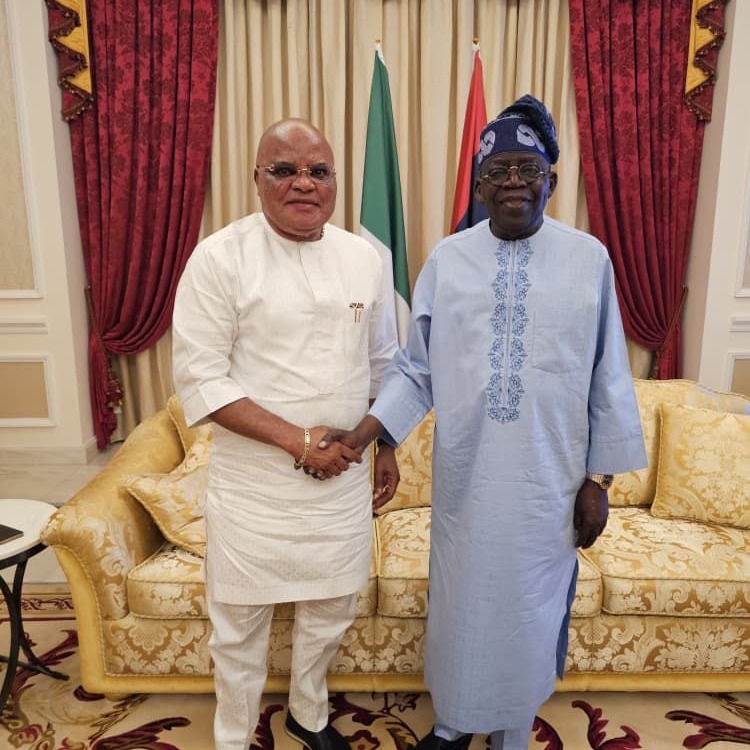Politics
Ukraine updates: Russia says dozens of drones target Moscow
The Kremlin said 70 Ukrainian drones were intercepted by Russian air defense in six regions. Meanwhile, the EU’s top diplomat vowed “unwavering” support for Kyiv after Donald Trump’s reelection.
Moscow Mayor Sergey Sobyanin said Russia’s air defense destroyed dozens of Ukrainian drones heading for the capital region.
Three of Moscow’s airports, including Sheremetyevo International Airport, temporarily suspended operations amid the assault.
It was the largest attack on the capital since Russia launched its invasion of Ukraine in 2022.
The Russian Defense Ministry said it had downed 70 drones across six regions overnight.
Meanwhile, Ukraine’s military said its air defense downed 62 out of 145 Russian drones launched on its territory overnight — the most by Moscow in any nighttime attack.
Ukraine’s top military commander, Oleksandr Syrskyi, said reports suggest North Korean troops were preparing for combat alongside Russian forces in Ukraine.
EU foreign policy chief Josep Borrell made his first visit to Kyiv since Donald Trump’s US presidential election victory, promising Brussels’ “unwavering” support to Ukraine.
Here are the latest developments in Russia’s war in Ukraine on Sunday, November 10:
Russia, Ukraine step up drone warfare
Russia and Ukraine have intensified drone attacks against each other, sending out unprecedented numbers of the uncrewed aircraft.
The Ukrainian port city of Odesa was the main target of Russia’s attacks.
Watch DW’s full report here:
Biden to lobby Trump administration to support Ukraine
US President Joe Biden will lobby the incoming Trump administration to continue supporting Ukraine against Russia, the White House’s national security adviser said on Sunday.
Biden and Trump will meet at the Oval Office next Wednesday to discuss the transition process.
“The President will have the chance to explain to [President-elect] Trump how he sees things, where they stand,” and talk to Trump about how he would take on these issues once in office, Jake Sullivan said in an interview on CBS show Face the Nation.
A key topic will likely be Russia’s war in Ukraine.
“President Biden will have the opportunity over the next 70 days to make the case to the Congress and to the incoming administration that the United States should not walk away from Ukraine, that walking away from Ukraine means more instability in Europe,” Sullivan said.
Sullivan also said the White House plans to spend its remaining $6 billion (€5.6 billion) of Ukraine funding before the end of Biden’s term in January.
The Biden administration’s prime goal was “to put Ukraine in the strongest possible position on the battlefield so that it is ultimately in the strongest possible position at the negotiating table,” Sullivan said.
https://twitter.com/FaceTheNation/status/1855650332505973110?ref_src=twsrc%5Etfw%7Ctwcamp%5Etweetembed%7Ctwterm%5E1855650332505973110%7Ctwgr%5E0e0753e022fe2c3fcf78ebef34a309243103a249%7Ctwcon%5Es1_&ref_url=https%3A%2F%2Fwww.dw.com%2Fen%2Fukraine-updates-russia-says-dozens-of-drones-target-moscow%2Flive-70745418
Kremlin sees ‘positive signals’ from Trump’s election
The Kremlin said it sees “positive signals” from the election of Donald Trump as US president.
“During his campaign, Trump spoke of achieving things through deals, that he could make a deal that would lead to peace,” Kremlin spokesperson Dmitry Peskov said.
“At least he is talking about peace. He’s not talking about confrontation, he’s not talking about wanting to deal Russia a strategic defeat. And that distinguishes him in a favorable way from the current administration.”
However, Peskov said that it is nevertheless hard to predict “to what extent he’s going to stick to statements that he made on the campaign trail.”
Russian President Vladimir Putin previously said he was “ready” to hold talks with Trump.
Putin finalizes North Korea defense deal
Russian President Vladimir Putin has signed off on a landmark defense pact with North Korea, as reports suggest that Pyongyang has sent thousands of troops to fight against Ukraine.
The Kremlin published the signed law ratifying the treaty on its website on Saturday evening.
Putin struck the deal during a visit to North Korea in June, which the Russian leader hailed as a “breakthrough document.”
The pact obliges both states to provide military assistance “without delay” in the case of an attack on the other.
It also commits them to cooperate to oppose Western sanctions and coordinate positions at the United Nations.
South Korea, Ukraine and the West have said that North Korea has deployed around 10,000 troops to Russia.
Ukraine’s top military commander Oleksandr Syrskyi said Sunday that the North Korean soldiers were currently being readied for the front line, citing intelligence reports.
Zelenskyy says Russia carried out largest overnight drone attack since war began
Ukrainian President Volodymyr Zelenskyy said Russia fired 145 drones at Ukraine overnight, the most in any single night-time attack of the war so far.
“Last night, Russia launched a record 145 Shaheds and other strike drones against Ukraine,” Zelenskyy said on social media.
He then noted how Russian forces had used more than 800 guided aerial bombs, around 600 strike drones, and nearly 20 missiles of various types on Ukraine over the past week.
He then called for Kyiv’s allies to increase supplies to help protect the country’s skies, in an apparent message to US President-elect Donald Trump who has vowed to reduce support to Ukraine and negotiate a speedy end to the war once he takes office in January.
“Such terror cannot be stopped with words, and the killing of children and the loss of loved ones cannot simply be forgotten,.” Zelenskyy said. “Security from terror is impossible without bold decisions — this is clear for every country. Without justice, there is no lasting peace, and it is quite realistic for Ukraine to achieve it.”
Russia claims control of eastern Ukraine’s Vovchenko
Russian forces captured the Ukrainian village of Vovchenko, the Defense Ministry in Moscow claimed.
“Units of the Centre armed group have liberated the town of Voltchenka,” the ministry said, using the Russian spelling of the Ukraine village Vovchenko.
It is not possible to verify the claim. Ukraine rarely admits any loss of territory until weeks afterward.
Vovchenko is located in the eastern Donetsk region, on the Vovcha River, around five kilometers (three miles) from the industrial city of Kurakhove.
Kurakhove has become the new Bakhmut, which Russia captured in May 2023 following a monthslong war of attrition.
Russia says it shot down 70 Ukrainian drones over 6 regions
Russia said it had downed 70 Ukrainian drones over six regions, including 34 around the Russian capital Moscow.
The Russian Defense Ministry said on Telegram that the attack had occurred between 7 am and 10 am local time on Sunday (0400 and 0700 GMT/UTC).
The other regions targeted were Tula, Bryansk, Kaluga, Oryol and Kursk regions, the ministry said.
The Moscow attack was the largest in the region since Russia began its offensive in Ukraine in 2022.
The drone strikes forced the temporary closure of three Moscow airports, injured a 52-year-old woman and set two homes on fire in a village in the Moscow region, officials said.
UK: Russia suffered 1,500 casualties a day in October
The United Kingdom’s chief of defense Admiral Tony Radakin said Russia was paying an “extraordinary price” for President Vladimir Putin’s war in Ukraine.
Radakin said Moscow’s forces suffered an average of around 1,500 dead and injured per day in Ukraine during October, telling the BBC that it was the worst month for losses since the conflict began.
“Russia is about to suffer 700,000 people killed or wounded — the enormous pain and suffering that the Russian nation is having to bear because of Putin’s ambition,” he said.
Radakin said that while Russia was making gains and putting pressure on Ukraine, the losses were “for tiny increments of land,” while the country’s huge increased defense spending was “an enormous drain” on the economy.
Ukraine says it downed 62 out of record 145 Russian drones
Ukraine’s air defense downed 62 out of the record 145 Russian drones launched overnight, the Ukrainian military said.
The air force said it lost track of 67 drones, adding that 10 drones left Ukraine’s airspace in the direction of Russia, Moldova and Belarus.
Russia shoots down several drones heading for Moscow, says mayor
Ukraine launched at least 34 drones targeting Moscow early on Sunday, forcing the temporary closure of the capital’s airports, Russian officials said.
Mayor Sergey Sobyanin said 12 of the drones were destroyed in the Ramenskoye and Kolomensky districts of the Moscow region, as well as in Domodedovo city, southwest of Moscow.
“At the moment, 32 drones flying to Moscow have been destroyed,” Sobyanin added, before another Russian official increased the number to 34.
“According to preliminary information, there is no damage or casualties at the site of the fall of the debris,” Sobyanin said on the Telegram messaging app. “Emergency services are on the sites.”
Ramenskoye, some 45 kilometers (30 miles) southeast of the Kremlin, was last targeted in Ukraine’s biggest attack on Moscow in September, when Russia destroyed 20 drones.
Rosaviatsia, Russia’s federal air transport agency, said on Telegram that temporary restrictions were introduced at Domodedovo and Zhukovo airports to protect civilian aircraft. Later, Moscow’s Sheremetyevo airport also said it had temporarily stopped taking flights.
Russia’s Bryansk, Kaluga regions hit by Ukrainian drones
Several buildings caught fire in Russia’s Kaluga and Bryansk regions after overnight drone attacks by Kyiv’s forces, Russian regional governors said.
“Emergency services and firefighters are on the site,” Alexander Bogomaz, governor of the Russian border region of Bryansk, wrote on the Telegram messaging app.
Russia’s Defense Ministry said its air defense units had destroyed 23 Ukrainian drones overnight, including 17 over Bryansk.
Ukraine’s military wrote on Telegram that the drone strike caused a large fire and at least eight explosions.
Vladislav Shapsha, governor of the Kaluga region, which borders the Moscow region, said a non-residential building in the region was on fire following the drone strikes.
Ukraine has often said its drone attacks on Russian territory are aimed at infrastructure key to Moscow’s war efforts.
Two hurt in Russian air attack on Odesa, Kyiv says
At least two people were injured and buildings were damaged in an overnight Russian drone attack on Ukraine’s southern region of Odesa, Ukrainian officials said.
“The enemy has once again launched a massive attack on our region,” the State Emergency Service of Ukraine in the Odesa region said on its social media account.
The agency said garages with cars and property were on fire and that residential buildings and shops were damaged.
Oleh Kiper, governor of the region on the Black Sea coast, said, without providing further detail, that the attack caused some fires.
Video footage posted by the emergency services showed residents gathered in front of a building watching as firefighters combed through a pile of building debris.
Ukraine commander: North Korean troops nearing combat readiness
Reports suggest North Korean troops are preparing for combat alongside Russian forces in Ukraine, Kyiv’s top military commander said.
“We have numerous reports of North Korean soldiers preparing to participate in combat operations alongside Russian Forces,” Oleksandr Syrskyi wrote on Facebook.
He was speaking after a conversation with Christopher Cavoli, a senior US general who heads the US European Command.
Syrskyi said the situation in frontline sectors in the war against Russia remained “difficult and show signs of escalation.”
EU’s Borrell reaffirms support for Ukraine after Trump win
The European Union’s foreign policy chief Josep Borrell pledged “unwavering” support for Ukraine, on the first visit by a top Brussels official to Kyiv after Donald Trump’s win.
“The clear purpose of this visit is to express European Union support to Ukraine — this support remains unwavering,” Borrell told journalists.
“This support is absolutely needed for you to continue defending yourself against Russian aggression.”
During the US presidential election campaign, Trump cast doubt on maintaining US military and financial aid to Ukraine and said he could pressure both sides to cut a quick deal to end the war.
“Nobody knows exactly what the new administration is going to do,” Borrell said, pointing out that incumbent Joe Biden still has two months in the White House to make decisions.
The EU diplomat, who himself leaves office next month, called for additional weapons, training and more speedy deliveries to Ukraine from its allies.
Europe together has spent around $125 billion (€117 billion) on supporting Ukraine since Russia’s 2022 invasion, while the United States alone has delivered more than $90 billion, according to a tracker from the Kiel Institute for the World Economy (IfW-Kiel).
mm/wmr (AFP, AP, dpa, Reuters)
Politics
Engineers Farouk Ahmed, Gbenga Komolafe resign, President Tinubu nominates successors to the Senate for approval

President Bola Ahmed Tinubu has asked the Senate to approve the nominations of two new chief executives for the Nigerian Midstream and Downstream Petroleum Regulatory Authority (NMDPRA) and the Nigerian Upstream Petroleum Regulatory Commission (NUPRC).
The requests followed the resignation of Engineer Farouk Ahmed of the NMDPRA and Gbenga Komolafe of the NUPRC. Both officials were appointed in 2021 by former President Buhari to lead the two regulatory agencies created by the Petroleum Industry Act (PIA).
To fill these positions, President Tinubu has written to the Senate, requesting expedited confirmation of Oritsemeyiwa Amanorisewo Eyesan as CEO of NUPRC and Engineer Saidu Aliyu Mohammed as CEO of NMDPRA.
The two nominees are seasoned professionals in the oil and gas industry.
Eyesan, a graduate of Economics from the University of Benin, spent nearly 33 years with the NNPC and its subsidiaries. She retired as Executive Vice President, Upstream (2023–2024), and previously served as Group General Manager, Corporate Planning and Strategy at NNPC from 2019 to 2023.
Engineer Saidu Aliyu Mohammed, born in 1957 in Gombe, graduated from Ahmadu Bello University in 1981 with a Bachelor’s in Chemical Engineering. He was announced today as an independent non-executive director at Seplat Energy.
His prior roles include Managing Director of Kaduna Refining and Petrochemical Company and Nigerian Gas Company, as well as Chair of the boards of West African Gas Pipeline Company, Nigeria LNG subsidiaries, and NNPC Retail.
He also served as Group Executive Director/Chief Operating Officer, Gas & Power Directorate, where he provided strategic leadership for major gas projects and policy frameworks, including the Gas Masterplan, Gas Network Code, and contributions to the Petroleum Industry Act (PIA).
Engineer Mohammed played a pivotal role in delivering key projects such as the Escravos–Lagos Pipeline Expansion, the Ajaokuta–Kaduna–Kano (AKK) Gas Pipeline, and Nigeria LNG Train.
EVENTS
PRESIDENT TINUBU CONGRATULATES SENATOR IFEANYI ARARUME ON HIS BIRTHDAY

President Bola Tinubu felicitates Senator Ifeanyi Godwin Ararume, astute politician and accomplished businessman, on his birthday, December 16.
Senator Ararume’s odyssey in politics began in the late 1980s, when he served as the State Treasurer of the Liberal Convention in old Imo State. He later joined the National Finance Committee of the defunct National Republican Convention.
He represented Imo North in the 9th National Assembly. He was first elected in May 1999 and re-elected in April 2003. He also served on several committees and held other official roles.
President Tinubu commends the former senator for his years of service to the nation and contributions to its peace, unity, and progress.
The President describes Senator Ararume as a resolute and shrewd politician, highlighting his courageous and remarkable political journey through the years.
President Tinubu wishes Senator Ararume a happy 67th birthday and prays that God Almighty will grant him more years of good health and strength.
Politics
Ndigbo are no longer spectators in the Nigerian project- Minister Dave Umahi dismisses calls for Biafra under Tinubu’s administration

The Minister of Works, David Umahi, says the all-inclusive style of governance being practiced by President Bola Tinubu has made the agitation for Biafra an unnecessary clamour.
While speaking at the inspection of the Enugu-Anambra road last Saturday, December 13, Umahi said the Tinubu administration had given Ndigbo what they had sought for decades, not through secession, but through what he described as unprecedented inclusion in national governance and development.
He explained that the agitation for Biafra was historically driven by neglect, exclusion and underrepresentation at the federal level, but insisted that the situation had changed under the current administration.
“When a people are fully integrated, respected and empowered within the structure of the nation, the dream they once chased through agitation has already been achieved through cooperation.
The push for Biafran secession over the years was borne out of neglect, exclusion and underrepresentation but today the narrative has changed dramatically under President Bola Tinubu.
The President has deliberately opened the doors of national development to the South-East. Appointments, policy inputs and infrastructure priorities now reflect true federal balance.
Every sector now bears visible Igbo footprints. The emergence of Igbo sons and daughters in strategic positions is a testament to this inclusion.
Biafra was never about breaking Nigeria; it was about being counted in Nigeria. Through inclusion, equity and concrete development, Ndigbo are no longer spectators in the Nigerian project; they are co-authors of its future. When justice finds a people, agitation loses its voice.”he said
-
Business1 year ago
US court acquits Air Peace boss, slams Mayfield $4000 fine
-

 Trending1 year ago
Trending1 year agoNYA demands release of ‘abducted’ Imo chairman, preaches good governance
-

 Politics1 year ago
Politics1 year agoMexico’s new president causes concern just weeks before the US elections
-

 Politics1 year ago
Politics1 year agoPutin invites 20 world leaders
-

 Politics1 year ago
Politics1 year agoRussia bans imports of agro-products from Kazakhstan after refusal to join BRICS
-
Entertainment1 year ago
Bobrisky falls ill in police custody, rushed to hospital
-
Entertainment1 year ago
Bobrisky transferred from Immigration to FCID, spends night behind bars
-
Education1 year ago
GOVERNOR FUBARA APPOINTS COUNCIL MEMBERS FOR KEN SARO-WIWA POLYTECHNIC BORI













